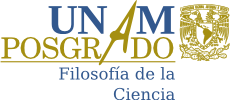Although it occupies a sui generis place in science, mathematics (and the formal sciences in general) share many philosophical problems with the rest of the sciences. Even more, many of the fundamental problems in the philosophy of science (not only the ontological, metaphysical, or epistemological, but also those ethical, political, historiographical, etc…) acquire a new character and highlight many of its hard edges when applied to the case of mathematics.
Besides the classical foundational problems (the existence of the mathematical objects, the foundations of mathematical knowledge, the meaning of language, etc…), the wide field of contemporary philosophy of mathematics include topics like applicability, the nature of formal representations, the cognitive processing of mathematical concepts, etc… In this terminal line we look to introduce the student to this complex and fascinating field of philosophical problems.
Not only are the formal sciences an object of study of the philosophy of science, but they have also proved to be powerful and sophisticated tools of analysis and modeling.
It is indispensable, then, that the philosopher of science is capable of using and interpreting the use of formal tools in the study of science. After all, many cognitive phenomena involved in the scientific endeavor are inferential, and the study of those phenomena has been the area of study of logic since the beginning of history.
Science is a natural field of study for logical analysis. One of the main objectives of this terminal line, in consequence, is that the student acquires the tools and abilities necessary to build, interpret, and criticize the logical and formal studies of science.














